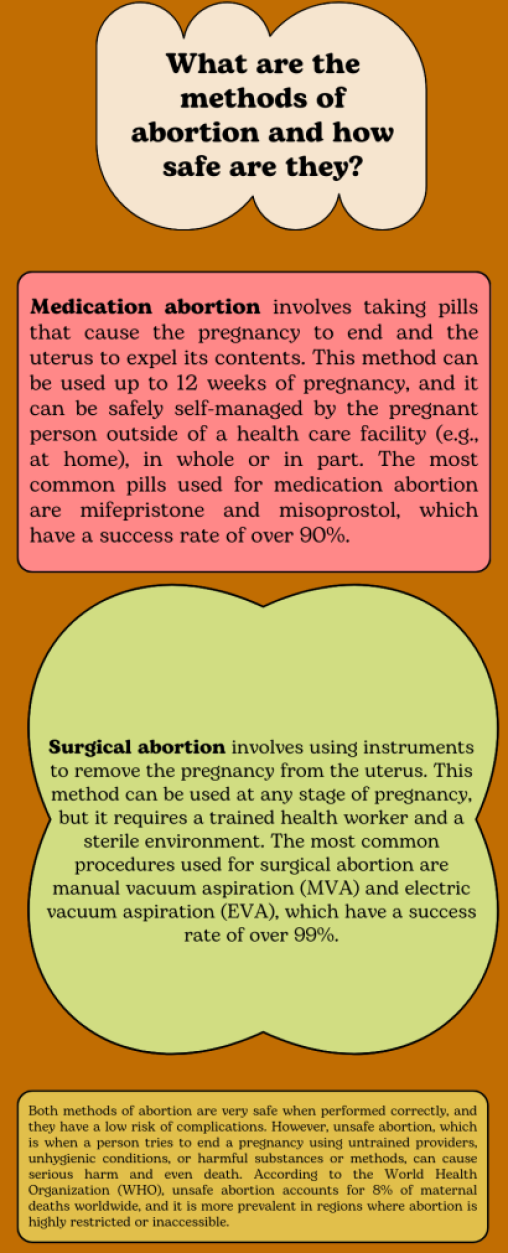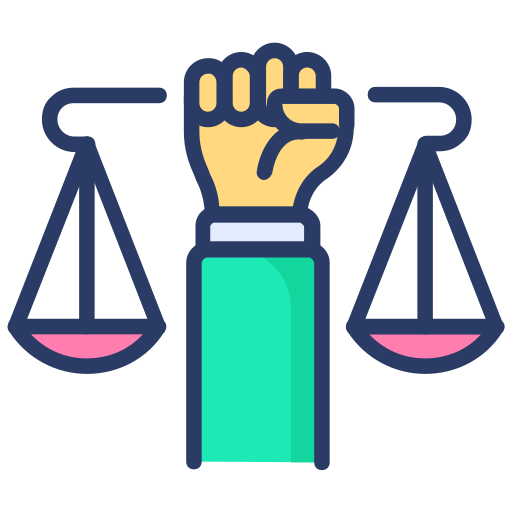Abortion is the termination of a pregnancy before the fetus can survive outside the uterus. Abortion can be induced or spontaneous. Induced abortion is when a person deliberately ends a pregnancy. Spontaneous abortion, also known as miscarriage, is when a pregnancy ends naturally without human intervention.
Abortion is a complex and sensitive issue that involves legal, ethical, religious, social, and health aspects. In this page, we will explore some of the following topics:
- What are the reasons why people seek abortion?
- What are the laws and policies on abortion in Southern and Eastern Africa?
- What are the consequences of unsafe abortion and how can they be prevented?
- What are the rights and responsibilities of people who seek or provide abortion?
- Where can people get support and advice on abortion?
What are the reasons why people seek abortion?
People seek abortion for various reasons, depending on their personal, social, and health circumstances. Some of the common reasons include:
- Not being ready or able to raise a child
- Having financial difficulties or lack of support
- Having relationship problems or being a victim of abuse
- Having health concerns for themselves or the fetus
However, unlike in some other regions, people in Southern and Eastern Africa face many legal and health barriers when seeking abortion. Most of the countries in this region have restrictive laws that only allow abortion in limited circumstances, such as to save the life of the woman, or in cases of rape, incest, or fetal impairment. As a result, many people resort to unsafe methods of abortion that put their lives and health at risk. According to the Guttmacher Institute, sub-Saharan Africa has the highest rate of abortion-related deaths in the world, at 185 maternal deaths per 100,000 abortions.
Therefore, it is important for people in this region to know their rights and options when it comes to abortion, and to seek safe and legal services if they need them. There are some organizations and initiatives that provide information, counseling, and referrals for safe abortion services in Southern and Eastern Africa, such as Ipas Africa Alliance, Marie Stopes International, Safe2Choose, and Women on Web.

What are the laws and policies on abortion in Southern and Eastern Africa?
The laws and policies on abortion in Southern and Eastern Africa vary widely among different countries, ranging from very restrictive to relatively liberal. According to a report by the Center for Reproductive Rights, out of 28 countries in this region, only four (Cape Verde, Mozambique, South Africa, and Zambia) allow abortion on request or on broad social grounds. The rest of the countries only permit abortion under limited circumstances, such as to save the life of the woman, or in cases of rape, incest, or fetal impairment. Some countries, such as Angola, Egypt, Lesotho, Madagascar, Mauritius, and Somalia, have a total ban on abortion with no exceptions.
Here is a summary of the abortion laws by country in this region:
- Angola: Abortion is illegal with no exceptions.
- Botswana: Abortion is legal only to save the life of the woman, or in cases of rape, incest, fetal impairment, or when the woman is of unsound mind.
- Burundi: Abortion is illegal with no exceptions.
- Comoros: Abortion is illegal with no exceptions.
- Djibouti: Abortion is legal only to save the life of the woman, or in cases of rape or incest.
To see the full list of countries and their abortion laws, please visit this link:
https://reproductiverights.org/worldabortionlaws
The legal status of abortion does not necessarily reflect the availability and accessibility of safe abortion services in this region. Even in countries where abortion is legally permitted, there may be barriers such as lack of trained providers, inadequate facilities, high costs, stigma, and conscientious objection that prevent people from accessing safe abortion care. Conversely, in countries where abortion is highly restricted, there may be initiatives and organizations that provide information, counseling, and referrals for safe abortion services outside the legal framework.
There is a need for more research and advocacy to support evidence-informed policies and reforms that ensure women’s and girls’ access to comprehensive abortion care (CAC) in Southern and Eastern Africa. CAC includes not only safe abortion services, but also post-abortion care, contraception, sexuality education, and legal protection. CAC is essential for advancing gender equality, human rights, and public health in this region.
What are the consequences of unsafe abortion and how can they be prevented?
Unsafe abortion is when a person tries to end a pregnancy using untrained providers, unhygienic conditions, or harmful substances or methods. Unsafe abortion can cause serious harm and even death to the pregnant person, as well as to their family and community. According to the World Health Organization (WHO), unsafe abortion accounts for 8% of maternal deaths worldwide, and it is more prevalent in regions where abortion is highly restricted or inaccessible.
Some of the common complications of unsafe abortion include:
- Heavy bleeding or hemorrhage
- Infection or sepsis
- Injury to the uterus or other organs
- Incomplete abortion or retained products of conception
These complications can lead to long-term health problems, such as chronic pain, infertility, ectopic pregnancy, or cervical cancer. They can also affect the mental health of the person, causing depression, anxiety, guilt, or trauma. Moreover, they can impose a heavy burden on the health system and the economy, as they require costly and scarce resources for treatment and care.
Unsafe abortion can be prevented by ensuring that people have access to safe, timely, affordable and respectful abortion care. This includes not only safe abortion services, but also post-abortion care, contraception, sexuality education, and legal protection. These interventions can reduce the incidence of unintended pregnancies and unsafe abortions, and improve the health and well-being of women and girls.
What are the rights and responsibilities of people seeking or providing abortion?
Access to safe abortion is a matter of human right. Under international human rights law, everyone has a right to life, a right to health, and a right to be free from violence, discrimination, and torture or cruel, inhuman and degrading treatment. These rights imply that people have the right to make decisions about their own bodies and reproductive lives, including whether or not to continue a pregnancy, without interference from the state or others.
People seeking abortion have the right to:
- Access safe, legal, and affordable abortion services without barriers or delays
- Receive accurate and comprehensive information and counseling on abortion and its alternatives
- Give informed consent and exercise autonomy over their own bodies
- Be treated with respect, dignity, and confidentiality by health care providers and others
People seeking abortion also have the responsibility to:
- Respect the rights and opinions of others who may have different views on abortion
- Follow the instructions and guidelines given by health care providers for safe abortion care
- Seek post-abortion care and contraception if needed
People providing abortion have the right to:
- Provide safe, legal, and quality abortion services without fear of harassment or prosecution
- Receive adequate training and support to perform abortion care competently and ethically
- Exercise conscientious objection if they have moral or religious objections to abortion, but only if they refer the person to another provider who can offer the service without delay
People providing abortion also have the responsibility to:
- Respect the rights and dignity of the person seeking abortion and provide them with accurate and comprehensive information and counseling
- Follow the evidence-based guidelines and protocols for safe abortion care and ensure infection prevention and control measures
- Maintain confidentiality and privacy of the person seeking abortion and their medical records
Where can people get support and advice on abortion?
People who are considering or have had an abortion may need support and advice from various sources, such as health care providers, counselors, friends, family, or organizations. Some of the ways that people can get support and advice on abortion are:
- Talk to a trusted health care provider who can provide accurate and comprehensive information and counseling on abortion and its alternatives, as well as referrals to safe and legal abortion services if needed.
- Reach out to a supportive friend or family member who can listen and offer emotional support without judgment or pressure.
- Contact a counselor or therapist who can help with coping with the feelings and stress that may arise from having an abortion or considering one.
There are also some organizations and initiatives that provide information, counseling, and referrals for safe abortion services in Southern and Eastern Africa, such as Ipas Africa Alliance, Marie Stopes International, Safe2Choose, and Women on Web. These organizations can be contacted online or by phone, and they can offer confidential and non-judgmental support and advice on abortion.
